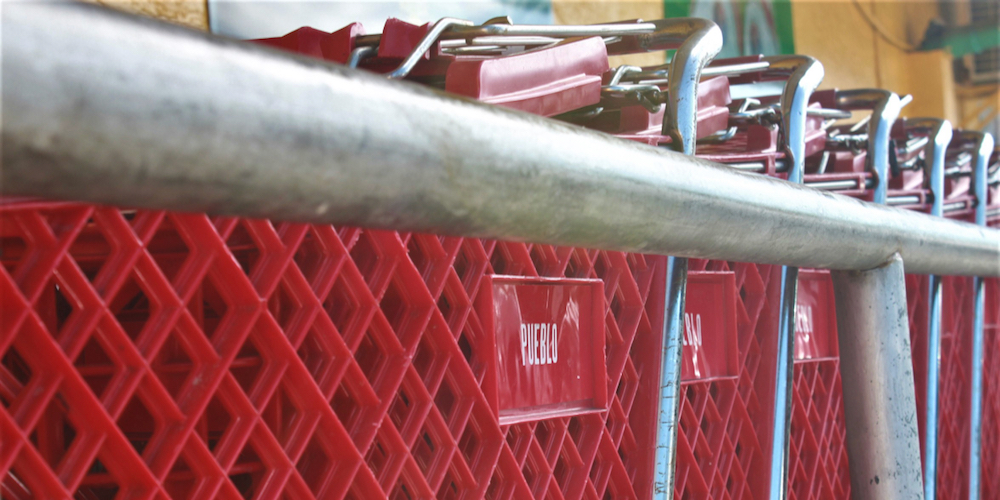
Prices at the register have been rising since the onset of the pandemic as local grocers contend with disruptions to national supply chains, reduced allocations, inflated shipping costs, and increased consumer demand.
Plaza Extra East Manager Nejeh Yusuf said the process to get food on the shelves is “simple,” but it is getting more costly by the week. A grocer or manager would place an order to their suppliers, have it shipped, pay taxes and duties, then store aside rations for when shipments are late or allocations are reduced.
“We’ve been getting rises in food costs from the time the pandemic started, and it has happened pretty much on a weekly basis – even from the local suppliers,” Yusuf said. “It’s really based on supply and demand. Lot of demand right now and there are a lot of folks not going back to factories because of the pandemic. Then there is a higher demand on those factories, having to produce more than what they can handle.”
A “big thing now” that wasn’t the case pre-pandemic is the allocations given to grocers, Yusuf said. “We might order 100 cases of something but instead get 60 cases if you’re lucky.”
In a press release issued Sept. 29, Department of Licensing and Consumer Affairs Commissioner Richard Evangelista alerted the public to “expect higher grocery prices as the coronavirus pandemic continues to disrupt supply chains.”
Though the disruption to supply chains across the country impacts the U.S. Virgin Islands, additional factors seep into the price of every product plucked from a shelf and placed into a shopping cart.
“Besides the actual cost of the product, which is rising, the shipping is one of the largest factors,” Yusuf said. “Shipping has gone up a good percentage since the pandemic.”
Not only have rates risen, but Evangelista said the process for shipping groceries into the islands is a multi-faceted one.
“When you look at prices stateside, a gallon of milk might be around $2.49 and a gallon of orange juice $3.99, but here it is double. That’s because in a refrigerated trailer you can only stack so many items before it gets crushed. So, the cost of a refrigerated trailer is built into the price of the item when purchased by the consumer,” Evangelista said. “That’s why refrigerated products and staple items – things that make people say, ‘Wow! Why is that so expensive?’ … Those things are so expensive because they can’t pack it in like dry goods.”
Shipping costs can be so severe that they can eat away any profit on certain products for grocers.
“There are certain items that grocers simply can’t mark up any more than they are,” Evangelista said. “What they do is they try to make their profit more on items like dog food … that’s where they make up their money for the items that they made nothing on.”
According to the territory’s Consumer Price Index, which was released in March by the Office of the Governor’s Bureau of Economic Research, food prices increased 20.7 percent over last year, “due to a constant rise in import and export fees.”
Alcohol also showed a significant increase, increasing 11.2 percent over the prior, pre-pandemic year.
“Food and alcoholic beverages have continued to show the highest percent increase. Food prices however on St. John showed a large component increase, up 25.8 percent, followed closely by St. Croix, up 18.9 percent rise. St. Thomas exhibited the smallest food price increase, 17.3,” read the territory’s Consumer Price Index.
Evangelista said prices will likely continue to climb and suggested readers look for the newest Market Basket Survey. The latest available is from April, but he said as soon as cases of the virus in the territory wane, the agency will resume the responsibility.
Rising food costs will continue to impact the islands, but Evangelista said it is important for the public to understand that “we are sharing with the community what is happening nationally.”